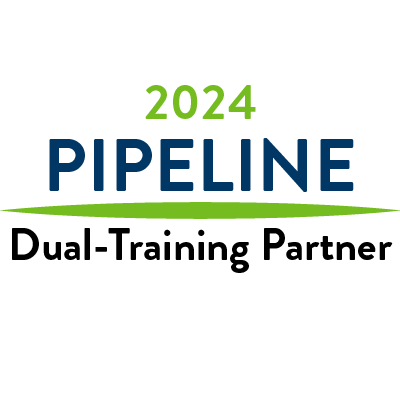
Summer and Fall 2025 Registration window now open.
Employers often rely on traditional hiring methods to recruit Metro State students and alumni. While this works for some, it may not work for others. If you are interested in considering some alternative ideas, we are ready to talk.
Apprenticeships are often associated with manufacturing and construction jobs, but a growing movement is happening to create Registered Apprenticeships in other industries. Apprenticeships are an effective way for you to develop your workforce through investing in a student and supporting them with a job, mentorship and tuition assistance.
The Department of Labor and Industry provides resources and support in developing this model at your business. Metro State would love to be your educational partner of choice.
Internships are a phenomenal way to build up the next generation of professionals in your field and find future employees. Internships are typically designed as temporary experiences where students are able to apply what they are learning in the classroom into the “real world.” Each internship will be uniquely different but typically run along the standard semester start and end dates. At Metro, many students are required to participate in an internship; while others will choose to engage for optional credits or for no credits.
Today’s students have many competing priorities and often find it hard to engage in unpaid experiences. Research supports the finding that students who engage in paid internships have better job prospects upon graduation and we would like to encourage you to consider paying your interns.
Not all students can commit to a full-time experience in addition to all of their other responsibilities, but they are still looking to connect with employers in a meaningful way. Organizations like Parker Dewey have set the industry standard for micro internships. Micro internships are short term experiences that typically focus a students work on one project or task. These can be designed based off a students interests and skills or included as part of a classroom project. Experiences lasting 40 or more hours have the potential to earn credit from the university.
Minnesota Dual-Training Pipeline exists to support employers in creating or enhancing a competency based, earn-and-learn dual-training approach to meeting their workforce needs. With Pipeline, workers receive a combination of related instruction paired with on-the-job training. Funding is available to help your company pay a student’s tuition, books, and fees while they are your employee.
The Pipeline program specifically targets 7 different high-growth industries that offer livable wages:
